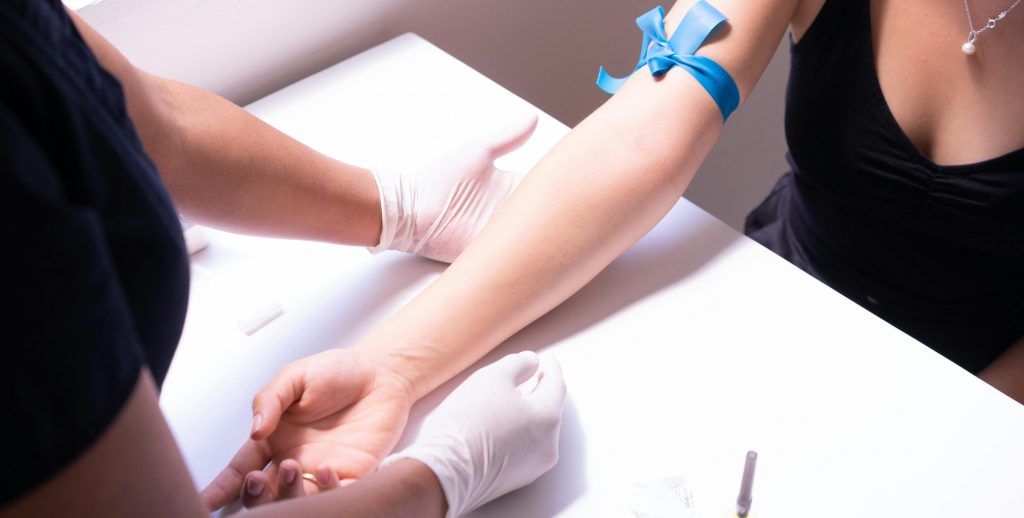The connection between HPV and penile cancer
When most people think of Human Papillomavirus (HPV), they think of the virus that causes genital warts – a symptom that is, for the most part, benign.
However, years of public health messaging have helped draw clear connections between HPV and negative health outcomes, particularly for women.
Aside from incidents of genital warts, certain strains of HPV have been connected with cervical cancer. Around 95% of all cases of cervical cancer are caused by HPV. In the UK, vaccination rates in women in their 20s have reduced incidents of cervical cancer by around 87%, according to a study conducted by Lancet in 2021.
But this good news hides an unfortunate trend.

Are you worried about STIs? Get tested with Better2Know today.
What about men?
Men don’t get vaccinated for HPV as often as women.
HPV vaccination rates in men have stubbornly remained lower than rates for women. While growing, male rates of vaccination in England have been lower than for females, particularly in HPV vaccination drives in schools. Between 2022 and 2023, year 9 dose 2 rates among males sat at just 62% when compared with 78% among females. Vaccination for males is lower in all years.
HPV vaccination was only rolled out for boys in schools in 2019 in England, so the vaccination rate in the general population, particularly among older males, is likely much lower, too.
In general, this could reflect a lack of knowledge about the virus or an impression that the worst effects of HPV are only felt by women and, therefore, treatment only needs to be sought by women.
But since men can spread the infection to women (and other men, too), it’s not ideal for only one gender to be vaccinated.
How does HPV affect men?
Most men will get HPV at some point in their life – around 8 out of 10. The likelihood of getting HPV will increase with the number of sexual partners you have.
Most infections caused by HPV are harmless, produce no symptoms, and are cleared by your immune system without incident.
However, some strains of HPV can cause some serious damage to your health.
Most HPV infections will be silent – and people who get them won’t even be aware of the infection. Some strains can produce warts. Others have been linked to cancerous changes in certain cells.
The most common symptom of HPV is genital warts. These warts are usually fleshy protuberances that appear on the penis or wider genital area. They tend not to be itchy and can vary in colour based on skin tone.
On occasion, genital warts can become so large that they can make sexual intercourse difficult. But for the most part, they’re harmless to the carrier. They can be treated with topical creams, freezing, or surgery. However, most warts will disappear on their own within several months or years.
HPV, though, can also cause more serious conditions, like certain cancers.
Just like cervical cancer for women, 14 different strains of high-risk HPV can cause throat, mouth, neck, and genital cancers.
In particular, men can develop penile cancer as a result of getting a high-risk strain of HPV. Around 60% of all instances of penile cancers are caused by high-risk HPV. Other risk factors for developing penile cancer include:
- Not being circumcised: having a foreskin creates a moist breeding ground where many bacterial infections can take root. Improper or irregular cleaning of the foreskin can increase the risk of these infections taking root, which can increase the risk of developing penile cancer
- Phimosis: phimosis is a condition where uncircumcised men are unable to fully retract the foreskin and clean the penis. This condition makes it easier for the above infections to take root
- Being over the age of 60: Most men diagnosed with penile cancer are over 60
- Smoking: Smoking can increase the risk of developing all kinds of cancer
- Undergoing PUVA therapy: Psoralen and ultraviolet A (PUVA) therapy, commonly used to treat psoriasis, can increase your risk of developing penile cancer
In addition to causing penile cancers, HPV infections have been associated with a fivefold rise in head and neck cancers in men between 2001 and 2017, according to the American Society for Clinical Oncology.
How does HPV cause penile cancer?
HPV is believed to cause penile cancer because it produces E6 and E7 proteins, which prevent tumour suppressor genes from functioning, allowing cells in the penis to divide uncontrollably. The most common strains involved are HPV 6, HPV 16, and HPV 18.
How common is penile cancer?
Penile cancer is fairly uncommon. However, in the last 30 years, many countries have seen a rise in the number of cases.
According to Cancer Research UK, there are around 760 new cases of penile cancer each year in the UK, with rates expected to rise by 9% each year between 2025 and 2040. Around 1 in 400 males will develop penile cancer in their lifetime.
In the rest of the world, penile cancer is more common. In Brazil, 6,500 amputations were conducted over the last decade as a result of penile cancer, largely suspected to be caused by the spread of HPV. Global incidence of penile cancer is expected to rise by 56% by 2040.
What are the symptoms of penile cancer?
Most penile cancers affect the foreskin or the head of the penis.
Common symptoms include:
- A growth, lump, or sore that doesn’t heal within 4 weeks
- A rash
- Bleeding from the penis under the foreskin
- Smelly discharge on the outside of the penis
- A change in the colour of the skin of the penis or foreskin
If you’re experiencing any of these symptoms, you should see your doctor as soon as possible.
How can I avoid getting HPV?
The best way to avoid getting HPV, or any STI for that matter, is to practice abstinence. However, that’s not realistic for many people. The next best way is to practice safe sex, ideally in a committed monogamous relationship.
If you’re a man who hasn’t done so already, you should consider getting the HPV vaccine. Getting vaccinated will help prevent the spread of high-risk strains of HPV and reduce the likelihood of negative health outcomes if you get it yourself. However, it works best in men under the age of 30.
If you already have symptoms of HPV, like genital warts, you can get a swab test for the virus at a sexual health clinic near you. Knowing your sexual health status will help you make responsible decisions for your health and the health of your sexual partners. You can also test yourself at home using Better2Know’s Genital Warts (HPV) Home Test Kit.
Final thoughts
The best way to protect your sexual health and avoid getting penile cancer is to know your sexual health status and to get vaccinated against HPV. This type of cancer is very uncommon, but protecting yourself against HPV infections will reduce the likelihood of a penile cancer scare.
If you’re concerned about STIs, call the number at the top of this page to speak to one of our friendly Sexual Health Advisors. You can also book a test or screen today through our online booking process. Click the button below to get started.

Don’t leave your sexual health to chance.
Categories
- Awards
- Bacterial Vaginosis
- Blood Tests
- Cardiovascular Health
- Cervical Cancer
- Chlamydia
- Condoms
- Covid-19
- Gardnerella
- Genital Warts
- Gonorrhoea
- Health and Wellness
- Hepatitis A
- Hepatitis B
- Hepatitis C
- Herpes
- HIV
- HIV (AIDS)
- Home Testing
- HPV
- Instant Testing
- MSM
- Mycoplasma
- News
- Non-Specific Urethritis
- PAP Smear
- Pre-Pregnancy
- Sexual Health
- STD Symptoms
- STD Tests and Screens
- STI Transmission
- Stigma
- STIs
- Swab Tests
- Syphilis
- Trichomonas
- Ureaplasma
- WSW
- Zika
